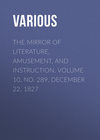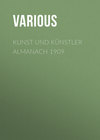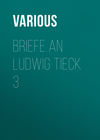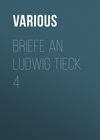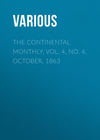Buch lesen: «The Mirror of Literature, Amusement, and Instruction. Volume 10, No. 289, December 22, 1827», Seite 3
MANNERS & CUSTOMS OF ALL NATIONS
No. XVII.
THE TURKS
(For the Mirror.)
The Turks have a manly and prepossessing demeanour; being generally of a good stature, and remarkably well formed in their limbs. The men shave their heads, but wear long beards, and are extremely proud of their mustaches, which are usually turned downwards, and which give the other features of the face a cast of peculiar pensiveness. They wear turbans, sometimes white, of an enormous size on their heads, and never remove them but when they go to repose. Their breeches, or drawers, are united with their stockings, and they have slippers, which they never put off but when they enter a mosque, or the house of a great man. Large shirts are worn, and over them is a vest tied with a sash; the outer garment being a sort of loose gown. Every man, in whatever station he is, carries a dagger in his sash. The women's attire much resembles that of the other sex, only they have a cap on their heads, something like a bishop's mitre, instead of a turban. Their hair is beautiful and long, mostly black, but their faces, which are remarkably handsome, are so covered when they walk out, that nothing is to be seen but their eyes. The ladies of the sultan's haram are lovely virgins, either captives taken during war, or presents from the governors of provinces. They are never allowed to stir abroad except when the grand signior removes; and then they are put into close chariots, signals being made at certain distances that no man may approach the road through which the ladies pass, on pain of death. There are a great number of female slaves in the sultan's haram, whose task it is to wait on the ladies, who have, besides, a black eunuch for their superintendant.
There are three colleges in Turkey where the children of distinguished men are educated and fitted for state employments. The children are first approved by the grand signior before they are allowed to enter these seminaries; and none dare come into his majesty's presence who are not handsome and well-made. Silence is first taught them, and a becoming behaviour to their superiors; then they are instructed in the Mahometan faith, the Turkish and Persian languages, and afterwards in the Arabic. At the age of twenty-one they are taught all manner of manly exercises, and above all, the use of arms. As they advance to proficiency in these, and other useful arts, and as government places become vacant, they are preferred; but it is to be observed, that they generally attain the age of forty before they are thought capable of being entrusted with important slate affairs.
Those who hold any office under the grand signior are called his slaves; the term slave, in Turkey, signifying the most honourable title a subject can bear. The grand signior is commonly supposed among his own people, to be something more than human; for he is not bound by any laws except that of professing and maintaining the Mahometan religion. A stranger desiring to be admitted into his majesty's presence, is first examined by proper persons, and his arms taken from him; he is then ushered before the royal personage between two strong supporters, but is not even then permitted to approach near enough to kiss the sultan's foot. 3
This custom, which is observed by every sultan, originated in the following manner:—Amurath I. having obtained a great victory over the Christians, was on the field of battle with his officers viewing the dead, when a wounded Christian soldier, rising from among the slain, came staggering towards him. The king, supposing the man intended to beg for his life, ordered the guards to make way for him; but drawing near, he drew a dagger from under, his coat, and plunged it into the heart of the great king, who instantly died.
In Turkey, no man marries a deformed wife for the sake of a fortune, as with us; beauty and good sense, to their credit be it spoken, are the only inducements to matrimony among the Turks. But they are an indolent people, and are much averse to improving their country by commerce, planting, or building; appearing to take delight in letting their property run to ruin. Alexandria, Tyre, and Sidon, which once commanded the navigation and trade of the whole world, are at present in the Turks' possession, but are only very inconsiderable places. Indeed, observes a judicious author, it is well for us that the Turks are such an indolent people, for their situation and vast extent of empire, would enable them to monopolize the trade of the world if they attended to it. They appear to possess very little genius or inclination for the improvement of arts and sciences although they live in countries which were once in the possession of the classic Greeks; but seem to prefer a slothful mode of life to an active one, continually sauntering away their time, either among women, or in taking coffee and smoking. Being men of great taciturnity, they very seldom disturb a stranger with questions; and a person may live in their country a dozen years, without having twenty words addressed to him, except on important business. They seldom travel, and have very little wish to be informed of the state of their own, or any other country; when a minister of state is turned out of his place, or strangled, (which is a frequent custom,) they coldly observe that there will be a new one, without inquiring into the reason of the disgrace of the former. The doctrine of predestination prevails, and they therefore think it wicked to endeavour to avoid their fate; frequently entering houses where they know the plague is raging.
All religions are tolerated in Turkey, though none are encouraged but the Mahometan faith. The Christians have churches, which the Turks not unfrequently convert into mosques for their own use; nor will they suffer any new churches, or temples, to be built, without extorting an exorbitant fine from the poor Christians. The high-priest of the Mahometan religion is called the mufti; he is invested with great power, and his seal is necessary to the passing of all acts of state. But any individual, who pleases to take the habit, may be a priest, and may leave the office when he is weary of it; for there is nothing like ordination among them.
G. W. N
PULQUE
Pulque, which is the favourite drink of the Mexicans, is extracted from the Manguey, or Great American Aloe; at the time of throwing its flower stem, it is hollowed in the centre and the juice which should have supplied the flowers, is taken from it daily, for about two months; which juice when fermented is immediately fit for drinking. A very strong brandy is obtained by distillation. So great is the consumption that the duty collected at the city gates, amounts annually to 600,000 dollars—From a Correspondent.
HATCHING CHICKENS
The following singular, though effectual mode of hatching chickens, prevails in the interior of Sumatra; and is vouched for by Major Clayton of the Bencoolen council:—
The hens, whether from being frightened off their nests by the rats, which are very numerous and destructive, or from some other cause hitherto prevalent in Sumatra, do not hatch their chickens in the ordinary way, as is seen in almost all other climates. The natives have for this purpose, in each village, several square rooms, the walls of which are made of a kind of brick, dried in the sun. In the middle of these rooms they make a large fire, round which they place their eggs at regular distances. In this manner they let them lie for fourteen days, now and then turning them, that the warmth may be equal in all parts; and on the fifteenth day, the chicken makes its appearance, and proves in every respect as strong as those hatched according to the course of nature.—From a Correspondent.
AFRICAN COOKERY
The legs and feet of the rhinoceros are cooked in the following curious method by the wild tribes of Southern Africa:—The ants nests are composed of hard clay, shaped like a baker's oven, and are from two to four feet in height. Some of these are excavated by the people, and their innumerable population destroyed. The space thus obtained is filled with lighted fuel, till the bottom and sides become red hot within. The embers of the wood are then removed, the leg or foot of the rhinoceros introduced, and the door closed up with heated clay and embers. Fire is also made on the outside over the nests, and the flesh is allowed to remain in it several hours. Food cooked in this way is highly relished by all the tribes.
EASTERN DIVORCES
If a man pronounce three divorces against a free woman, or two against a slave, he can lawfully wed neither of them again, unless they have been espoused by another, and this second husband dies, or shall divorce them. When it happens that a husband wishes to recover his wife, whom he had divorced in a passion, a convenient husband is sought; but the law forbids a mockery being made of such marriages. They may be short in duration, but the parties must live, during the period they are united, as man and wife.
